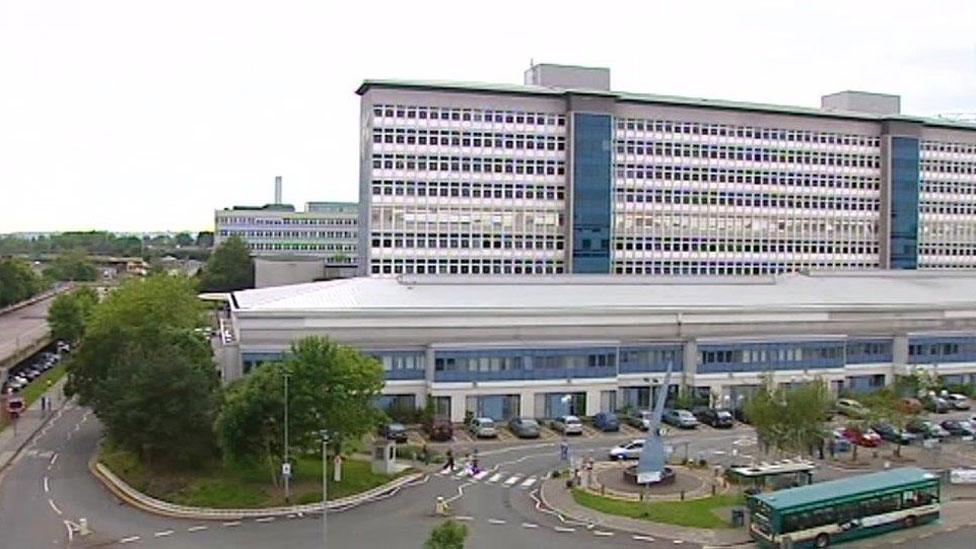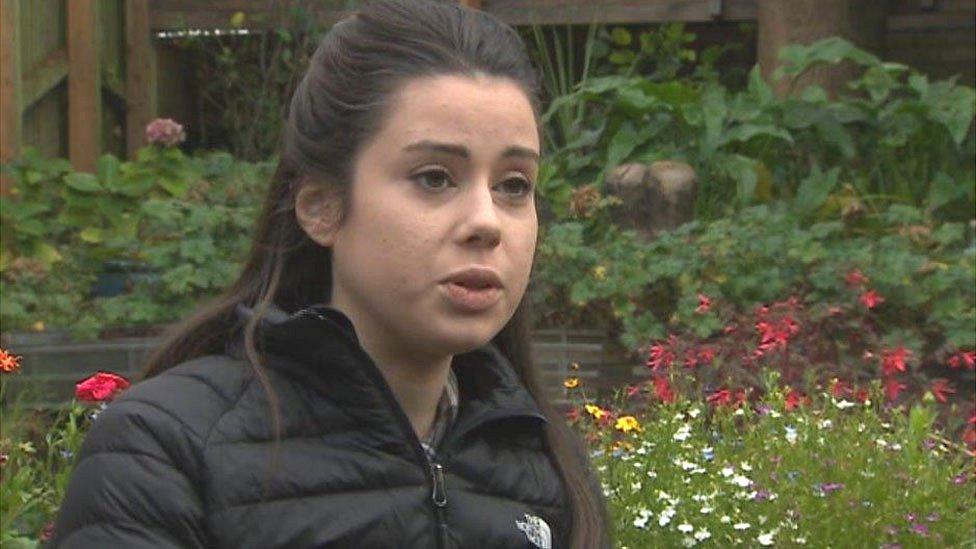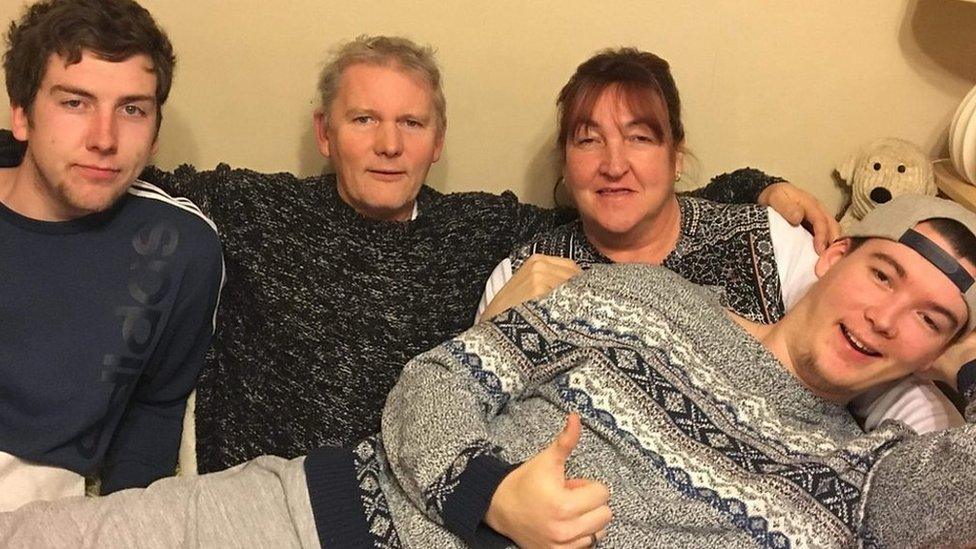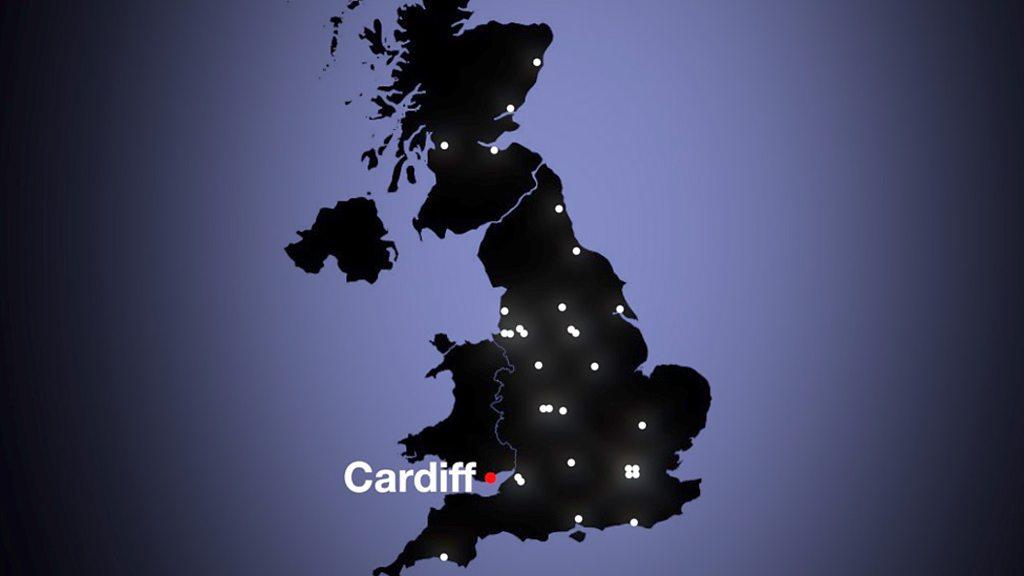Cardiff major trauma centre to go ahead
- Published

The University Hospital of Wales looks set become the first major trauma centre in the country after an agreement by six health boards.
It will act as main hub of a new major trauma network, covering south and mid Wales, which aims to improve survival chances for patients with multiple or life-threatening injuries.
A business case still needs to be put to Welsh Government.
At separate meetings, health boards backed Cardiff ahead of Swansea.
But Swansea would also play an enhanced role, becoming a major trauma unit helping to support the main centre in Cardiff.
BBC Wales understands the clinical lead for the whole south Wales network will be a doctor based at Morriston.
The proposal got the backing of two key health boards, covering west Wales.
Abertawe Bro Morgannwg health board (ABMU) approved the Cardiff option by a majority vote after two members objected and one abstained.

Major trauma centre - timeline:
2014: First discussions take place
June 2015: The preferred option to establish a single centre in south Wales is agreed
March 2017: An independent expert looks at the cases for a major trauma centre based in either Cardiff or Swansea.
June: Cardiff is the recommended option, partly due to its range of specialist services
November: One emergency care expert warns that five seriously injured patients die each month in south Wales because of the lack of a MTC, as public consultation starts
March 2018: NHS Wales Collaborative group backs the Cardiff case after considering public feedback and wants a "clear and realistic" timetable
2018-2020: A business case will now need to be made to the Welsh Government to support the network and the final details agreed

Some local politicians had urged it to reject the plan.
But the entire board supported the idea of setting up a major trauma network in south Wales.
North Wales is already covered by the West Midlands major trauma network - with about 17% of patients for the major trauma centre at Stoke coming from across the border.
Early on in the process for south Wales it was established that only Cardiff and Morriston could provide the necessary specialist services.

How major trauma centres work - in 45 seconds
More background on this story here:

Dr Phil Kloer, Hywel Dda's medical director, said after its board meeting: "I will be working closely with colleagues across Wales on implementation and my focus will be on ensuring our rural population here in west Wales has access to these services."
This would include towards establishing the "flying doctor" service as a 24/7 operation, improving access to specialist rehabilitation and ensuring accommodation for families visiting relatives was addressed.
Morriston - which has a specialist burns and plastics unit - had argued it was better located, with a greater proportion of south Wales within an hour's travelling time.
ABMU said after its board meeting that it "fully acknowledges" people in south west Wales want assurances that that the distance from Cardiff would not have an adverse impact on trauma patients.
"We are totally committed to ensuring that network arrangements to give these assurances are identified, and are an integral part of the implementation process," said a spokeswoman.
A panel of experts from outside Wales judged Cardiff would be the better choice - primarily because of the hospital's expertise in treating adults and children who have had head injuries.
A high proportion of major trauma cases involve head injuries.
Last week, health bosses gave their backing to that conclusion - following a three-month public consultation.
However, some politicians in south west Wales - who backed the Morriston bid - have called for the assembly to have a final say about where the trauma centre should be located.
South Wales is the only region in England and Wales that is not part of a networks of 27 hospitals specialising in major trauma care.
Since major trauma networks were first established in England at the beginning of the decade, survival rates for seriously injured patients have improved significantly.
The absence of a similar set-up in Wales has been described by leading doctors as "embarrassing" and an example of Wales being "left-behind".
- Published13 November 2017

- Published22 March 2018

- Published22 March 2018
